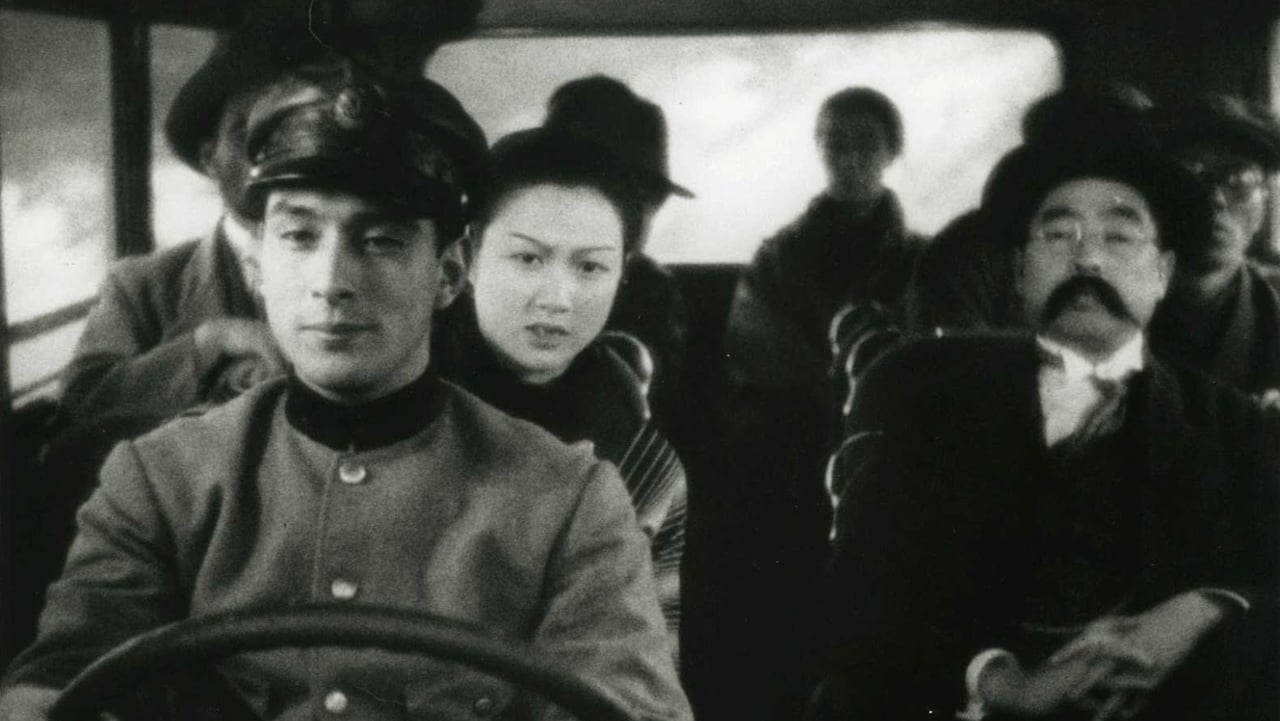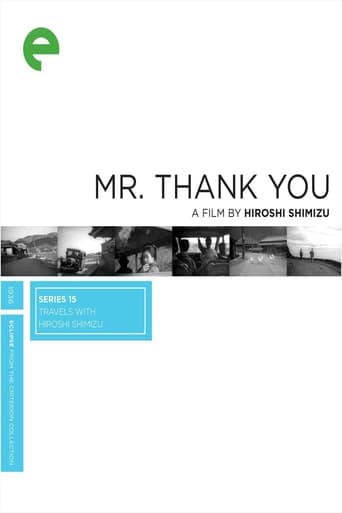

Brilliant and touching
... View MoreStory: It's very simple but honestly that is fine.
... View MoreThere is definitely an excellent idea hidden in the background of the film. Unfortunately, it's difficult to find it.
... View MoreIt's simply great fun, a winsome film and an occasionally over-the-top luxury fantasy that never flags.
... View MoreThis was the first movie of Shimizu Hiroshi I have watched and it left a good impression on me. The story seemed simple, but the scenes were well-executed. The film offers the viewer the chance to hop on Mr. Thank You's bus and drive through Japan's breath-taking countryside while listening to stories of people from all walks of life. It was very interesting to see how Japan looked like in the 1930s as well, far from how it looks like in modern times. All in all, a simple, lighthearted film that I would want to re-watch from time to time.
... View MoreViewed on DVD. Poor restoration. A film you don't want to end! This is a charming, engaging, and ultimately mesmerizing gem from director's Hiroshi Shimizu's canon. The title is the name given by the locals to a uniformed (right down to the traditional white gloves), exceeding polite, and exceptionally considerate driver of a small bus that connects country folks with the outside world. "Thank you" is a salutation the driver never fails to use when walkers allow his bus to pass on narrow dirt roads. They typically respond with "Thank You Mr."). It's only a dozen or two miles that are traveled, but a lot can (and does) happen during this particular trip. A time capsule of rural Japan in the midst of the Great Depression (circa 1936) and the director's conception of its inhabitants. The driver is quite sharp looking in his uniform, has the eye of all the women (both off and on the bus), and is a humanitarian and psychologist as well as a competent wheels man. Comedy (there are some hilarious one-liners not lost in the subtitles), poignancy, sadness, optimism/hopefulness, and a myriad of other emotional facets are provided by a group of talented (and engaging) character actors. It's remarkable how quickly the viewer is empathetically pulled into the characters' slices of lives without fully realizing it. The hallmark of a great story teller! Interestingly, no one seems to pay for a bus ride. Sound is sub par and artificial even by contemporary standards--the film seems to have been shot silently and later end-to-end dubbed (not unusual during the very early talkie days ((circa 1930)), but since abandoned in most of the West). The picture is relentlessly fuzzy which may be the result of having to use inferior film stock and/or a primitive printing process. But Shimizu rises above the marginal quality of the cinematic tools at his disposal to get his stories across! As for the restoration, it seems to have removed wear and tear as well as reel change-over artifacts, but should have worked A LOT HARDER at clarifying the image digitally. WILLIAM FLANIGAN, PhD.
... View MoreNice little Japanese comedy. Mr. Thank You is a bus driver who often brings people from the country to Tokyo. As he drives along the narrow dirt roads, he profusely thanks the farmers and such who move to the side as he passes them. At one village, he picks up a 17 year old girl and her mother. The girl is being transported to Tokyo, where her mother will sell her into prostitution. It's the Great Depression, and the family can no longer afford to support her. Over the course of the trip, Mr. Thank You becomes more and more aware of the girl's sad face. The rest of the bus chat amongst themselves, drink, smoke, whatever. The film runs about 80 minutes, and, honestly, is pretty slight. The titular character and the young girl are rather dull people. A couple of the other passengers are more interesting, but they also are generic types of people (e.g., modern woman or stuffy businessman). It's funny much of the time, and well filmed. I like seeing the Japanese countryside and its people. Japanese films of every era focus way too much on just Tokyo that it's easy to forget the rest of the country.
... View MoreThis is a simple premise about a bus driver dubbed Mr. Thank You because he always thanks people when they move to the side of the road to let him pass. Everyone he knows likes him and many say thank you back. This story is mainly about the people who get on the bus headed to a train. One is a mother and daughter, the mother only going so far to say goodbye to her daughter who is presumably being sold (this was the Great Depression, when things like that happened). There is a mix of people on the bus with different reasons for being there and they forge a relationship one might have if they were all going on a bus tour. You see some of the countryside of Japan, some of which is pretty even in black and white. It was a grim time for the world then and this film, while having a bit of light comedy, also has some sadness. As the film went on, I was more interested. Mr. Shimizu, as far as I'm concerned, can be mentioned in the same breath of the titans of Japanese film, like Kurosawa, Ozu, Mizoguchi and Naruse, as well as others. If you're interested in Japanese film, you owe it to yourself to buy the box set that has this film, which was just received domestically. Mr. Shimizu was very adept at capturing everyday people as they were living their lives. This is a triumph.
... View More